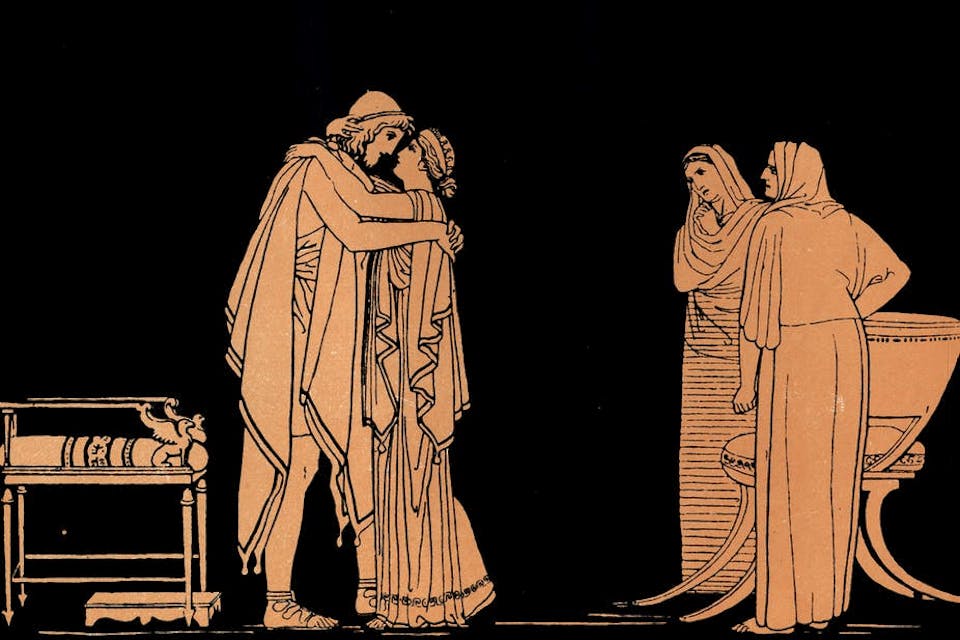
January 5, 2022
Should Jews Read Homer?
Despite extensive similarities, few readers have studied Genesis together with the Odyssey in hopes of illuminating the human condition. What lies waiting to be discovered?
This essay is the first in a six-part series by Jacob Howland on Homer and the Hebrew Bible. Historians of Western intellectual culture sometimes compare “Jerusalem,” or the biblical traditions that erupt into history at Sinai, with “Athens,” the city where Socrates, Plato, and Aristotle sought human wisdom through the exercise of the human mind. In this series, Howland invites a different comparison. Rather than comparing later prophets to philosophers, he looks back at yet earlier cultural cornerstones set at the very foundations of Hebraic and Greek civilizations. Future installments in Howland’s series will arrive monthly. —The Editors
The encounter between Jews and Greeks has not always been a happy one—to say the least. The holiday of Hanukkah famously recalls the series of events that began with the 168 BCE seizure of Jerusalem by the forces of the Syrian-Greek ruler Antiochus IV. “Raging like a wild animal,” according to the book of Maccabees, Antiochus proceeded to massacre or enslave thousands of citizens, to make the practice of circumcision a capital crime, to order the worship of Zeus as supreme god, and to sacrifice pigs in the Temple. Four years later, a revolt led by the heroic Maccabees managed to retake the city, to purify and re-dedicate the Temple, and to rekindle its lights.
But as much as Hanukkah is the story of a Jewish nationalist uprising against Greek domination and religious oppression, it is also the story of an internal conflict between Jewish traditionalists like the Maccabee family and assimilationist Jewish “Hellenizers.” As time went on, that internal conflict would only grow in intensity, to the point where, centuries later, the rabbis of the Talmud would record a saying: “Cursed is he who raises pigs, and cursed is he who teaches his son Greek wisdom” (M’naḥot 64b).